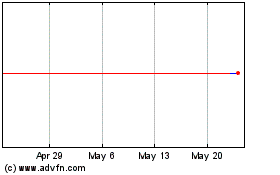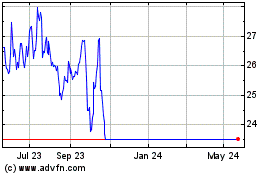New Australian Prime Minister Julia Gillard has for now taken
some of the heat out of the government's bitter battle with the
mining industry over a planned new mining tax, but a resumption of
hostilities looks inevitable.
Both sides have agreed to suspend their advertising attacks on
each other as Gillard promises genuine negotiations and her offer
of an open door has been welcomed by the industry.
However, the government's renewal of its commitment to bring the
budget into surplus in 2013, a feat that relies on the windfall
from the new tax unless it goes back on other promised policy
initiatives, has raised questions about how much ground the new
prime minister is actually willing to give.
Skeptical miners also note that with Treasurer Wayne Swan, an
architect and chief promoter of the tax, not only keeping his
position but also being promoted to deputy prime minister, there is
no guarantee that Gillard's ascendancy will lead to significant
changes to the tax plan.
The hostile standoff with mining companies since the tax plan
was announced in May was one of the issues that eroded support for
former Prime Minister Kevin Rudd, who on Thursday was
unceremoniously dumped by his party in favour of Gillard.
She will be under pressure to neutralize the issue and was
claiming an early win after mining companies agreed to her request
that they suspend their attack ads against the tax.
"Already we are seeing our goodwill reciprocated," she said in
her first address to Parliament. "This does give me confidence that
there is room for negotiation, there is an ability to work together
in the spirit of goodwill."
Mining company executives said they welcome the opportunity for
genuine engagement on the tax.
"We are encouraged by the comments of new Prime Minister Julia
Gillard, that her government will open the doors for negotiation
with the objective of achieving consensus," a BHP Billiton Ltd.
(BHP.AU) spokeswoman said after the company cancelled its
advertising program.
Rio Tinto Ltd. (RTP) said it has also suspended its advertising
campaign against the tax and welcomed Gillard's invitation to
engage in talks on the tax.
"While it is a positive first step, we need to end the
uncertainty affecting the Australian economy as soon as possible,"
a Rio Tinto spokesman said.
Industry lobby group, Minerals Council of Australia, has also
halted its advertising campaign against the tax and has agreed to
accept Gillard's offer.
Minerals Council Chief Executive Mitch Hooke said the decision
was "a gesture of goodwill in the expectation that consultations
will be meaningful and constructive."
Fortescue Metals Group Ltd. (FMG.AU) Chief Executive Andrew
Forrest welcomed Gillard's appointment, and said he was confident
the negotiations could result in a tax regime more attractive to
international investors.
"I feel personally that with Julia and Wayne, the original form
of that tax is now off the table and we can look at something
sensible," Forrest said at a media conference in Perth.
Forrest, one of Australia's richest men and founder of
Fortescue, the largest Australian iron ore producer after global
giants BHP and Rio Tinto Ltd. (RIO.AU), has hitherto been a vocal
critic of the proposed tax and its potential impact on the growth
of the Australian mining industry.
Ian Smith, chief executive of Australia's biggest gold producer
Newcrest Mining Ltd. (NCM.AU), added his voice to the newly
optimistic mining industry chorus, and said the company stands
willing to negotiate and that the signals from the new prime
minister are positive.
Despite the early pleasantries, however, the two sides are still
a long way apart and it isn't hard to find deep skepticism in the
mining industry about the government's willingness to
compromise.
Minerals Council's Hooke said at a meeting in Melbourne that any
new talks would need to address all of the key issues the mining
industry has raised, including the 40% rate of the tax, its
retrospectivity and its impact on Australia's international
competitiveness.
But Gillard made it clear soon after taking charge that she
still believes miners should be paying more tax.
A senior union official told Dow Jones Newswires he has been
advised the tax will remain, although in what form remains unclear.
"There will still be a super profit tax," the official said.
A person close to one of Australia's biggest mining companies
said Gillard has more room to back down on the tax or to announce a
wide ranging review of it, but that there was no guarantee that she
would do so, especially with Swan as her treasurer.
"The miners see it as potentially a circuit breaker but one that
is not automatic, and they will be very wary," the person said.
Tony Sage, executive chairman of Cape Lambert Resources Ltd.
(CFE.AU), said he expected the new leadership team of Gillard and
Swan to be wedded to the tax.
"Wayne Swan is the architect of this tax and he has been
virulently opposed to any compromise, so it would be a big
back-down for him personally. Gillard is from the left and was
never a favorite of the mining industry," he said.
However, the Minerals Council's Hooke said the industry had
strong respect for Swan and Resources Minister Martin Ferguson, who
will be carrying out the negotiations.
A mining analyst at an international bank in Sydney added that
the tax was too important to the government's plans to close its
budget deficit by 2012-2013 to be lightly sacrificed.
"You'd have to be extremely brave to assume it wouldn't continue
in some form," he said, speaking anonymously because his views
didn't represent those of the bank.
In its budget papers released last month, the government
estimated it would raise A$3 billion from the tax in 2012-2013 and
A$9 billion the following year.
The complex resource super profits tax would be levied at a rate
of 40% on all profits from mining projects above a rate of return
of about 6%.
Kevin Rudd and Wayne Swan said repeatedly that the 40% rate of
the tax wasn't up for negotiation but had never ruled out raising
the threshold at which the tax kicked in.
Miners were furious that they weren't consulted before the tax
was announced and factored into future government revenue, and that
many of their key complaints against the tax had been ruled off
limits in subsequent consultations with a government which then set
about attacking their contribution to the nation.
Gillard is yet to outline what is now up for discussion or how
she plans to meet budget forecasts if the tax is amended.
Until she does, there is no guarantee that the combatants in
this long running saga won't take up arms again in a battle that
could once more flare up as a damaging issue for the
government.
-By Alex Wilson, Dow Jones Newswires: 613-9292-2094;
alex.wilson@dowjones.com
(Bill Lindsay in Sydney also contributed to this article.)
Newcrest Mining (ASX:NCM)
Historical Stock Chart
From May 2024 to Jun 2024

Newcrest Mining (ASX:NCM)
Historical Stock Chart
From Jun 2023 to Jun 2024
